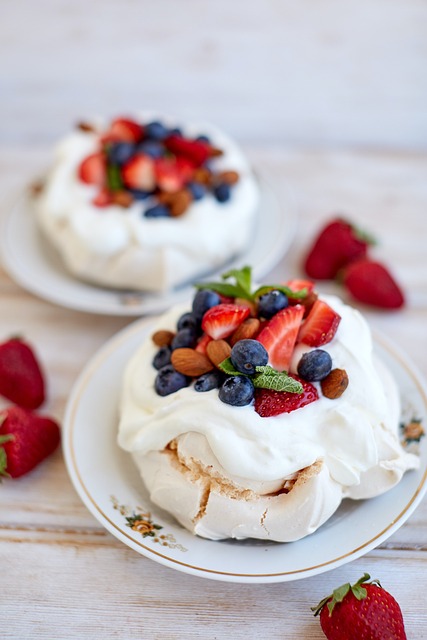Baked Goods: From Simple Ingredients to Culinary Masterpieces
Baked goods transform basic ingredients into extraordinary confections. Delve into the artistry of mixing flavors, textures, and techniques that define the world of baked goods. This exploration reveals the cultural and emotional connections we have with these delectable treats while showcasing the innovation within the baking community.
The Fundamentals of Baked Goods
At its core, the field of baked goods embodies a delicate interplay between science and creativity. Each ingredient, from flour to eggs, contributes its unique properties that can drastically alter the outcome of any baked good. A understanding of these fundamentals is essential for anyone aiming to create exceptional baked goods. For instance, the Maillard reaction plays a significant role in developing flavors during baking, where heat causes sugars and proteins to interact. It's indeed fascinating how mastering these basic concepts can lead to the creation of beautiful frosted cakes or flaky pastries. Such transformation, fueled by knowledge and practice, highlights the journey many bakers embark upon. Additionally, these principles adhere to established ratios that allow for variations, ensuring that even novice bakers can create baked goods that impress.
Global Influence on Baked Goods
Across the globe, baked goods not only reflect local ingredients but also the climate, traditions, and agricultural practices of each region. For instance, in France, the art of puff pastry has been perfected over generations, leading to items such as éclairs and tarts, while Asian cultures have their own unique offerings like Asian steam buns and mooncakes. It's intriguing to observe how these baked goods are not mere edibles but bear the stories of their origins, blending history with flavor. Moreover, the globalization of food has made it possible for different cultures to influence each other, thus enriching the world of baked goods. Unique ingredients such as matcha from Japan are finding their way into traditional Western recipes, creating exciting fusions that captivate taste buds across boundaries.
Baked Goods and Emotional Well-being
The connection between baked goods and emotional well-being is profound. The act of baking itself has been shown to provide stress relief and comfort for many. Engaging with simple ingredients can be a meditative process, fostering mindfulness that is increasingly valued in today's fast-paced life. Furthermore, sharing baked goods often conveys emotions and sentiments. Whether it's a batch of cookies baked for a friend's birthday or a loaf of bread gifted to a neighbor, these gestures help build community and reinforce relationships. In many cultures, homemade baked goods hold significant importance during celebrations, symbolizing love and care among families. Thus, every baked good serves as both a comfort and a connection, deeply rooted in emotional significance.
The Role of Technology in Baking
In today's digital age, technology has undeniably revolutionized the way we approach baking. Online classes and video tutorials offer insights into mastering the art of baked goods from the comfort of home. The advent of social media allows bakers to showcase their creations and connect with aficionados from around the world. Additionally, sophisticated tools, such as digital scales and temperature sensors, enhance accuracy, making the baking process smoother and more enjoyable. Surprisingly, many traditional bakers have embraced these technological tools, blending old and new techniques. It's encouraging to see how technology fosters an inclusive environment, allowing more people to experience the joy of creating their own baked goods, regardless of skill level.
Innovating Within the Baked Goods Market
Amid a climate of health consciousness, the baked goods market is witnessing significant innovation. Many bakeries are reimagining classic recipes, infusing them with healthier options, and exploring alternative flours like almond or coconut flour. These changes not only cater to dietary preferences but also promote sustainability by using organic, locally sourced ingredients. Moreover, as plant-based diets gain traction, the demand for vegan baked goods continues to rise. Bakeries must adapt to these changes while still maintaining the taste and quality that consumers expect. Interestingly, some brands have started to focus on transparency, providing consumers with detailed information about their ingredients, thus building trust and loyalty among their clientele. This shift towards healthier and more sustainable options redefines the landscape of baked goods.
Conclusion: An Ever-Evolving Bakery Landscape
In conclusion, baked goods represent a unique convergence of culture, creativity, and innovation. As the world evolves, so do our appetites and approaches to baking. The future promises an exciting new chapter where traditional baked goods can coexist with modern takes, leading to even more delightful innovations. Ultimately, baked goods remain a cherished aspect of our culinary experiences, bringing joy, comfort, and connection to people everywhere. In this journey, we witness not just flavors but the stories, traditions, and emotions intertwined in every delectable piece.
